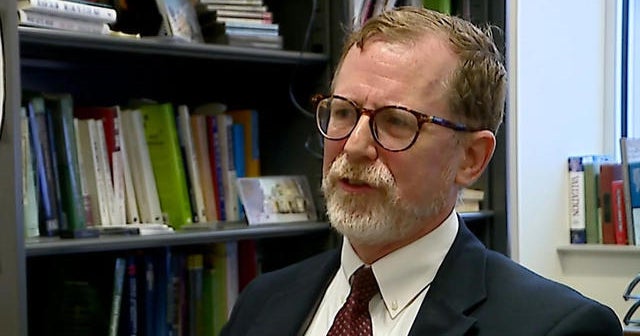Shielding the Future: How Public Schools Are Safeguarding Undocumented Students Amid Immigration Crackdowns
In an era marked by increasing immigration crackdowns, public schools across the United States have emerged as bastions of hope and safety for undocumented students. The political landscape surrounding immigration is fraught with tension, but educational institutions are adopting innovative strategies to provide a secure environment for all students, regardless of their immigration status. This article delves into the various measures being implemented by public schools to safeguard undocumented students and ensure their right to education.
Understanding the Challenges Faced by Undocumented Students
Undocumented students often grapple with a myriad of challenges that extend beyond the classroom. The fear of deportation, family separation, and social stigma can create a hostile environment that detracts from their educational experience. According to a report by the *American Civil Liberties Union (ACLU)*, many undocumented families live in constant anxiety about immigration enforcement, which can lead to decreased school attendance and engagement.
Moreover, these students often face barriers to accessing essential resources, including college scholarships, financial aid, and mental health services. This precarious situation is exacerbated by the rise in immigration raids and a political climate that can foster hostility toward immigrant communities. In response, public schools are stepping up to address these issues head-on.
Creating Safe Spaces: Policies and Practices
One of the most critical ways public schools are safeguarding undocumented students is by implementing inclusive policies that prioritize safety and support. Here are some of the key strategies being employed:
- Safe Zones: Many schools have declared themselves “safe zones,” where the presence of immigration enforcement is prohibited. This declaration helps to foster a sense of security among undocumented students and their families.
- Confidentiality Policies: Schools are establishing strict confidentiality policies to protect the personal information of undocumented students. This includes not disclosing immigration status to unauthorized individuals, ensuring that students can seek help without fear of exposure.
- Training Staff: Educators and staff are receiving training on the rights of undocumented students and how to provide appropriate support. This education helps create a more empathetic and informed school environment.
Innovative Support Programs
Beyond policies, many public schools are implementing innovative programs designed specifically to assist undocumented students and their families. These initiatives often focus on emotional and academic support:
- Counseling Services: Schools are expanding access to counseling services to help students cope with the stress and anxiety associated with their immigration status. This includes offering trauma-informed care and resources for mental health support.
- Legal Resources: Some districts have partnered with local organizations to provide legal resources and workshops for students and their families. These sessions educate families on their rights and available options, empowering them to navigate the complexities of immigration law.
- Academic Support: Schools are creating tutoring and mentorship programs that specifically cater to the needs of undocumented students. This support helps them stay engaged and succeed academically despite external challenges.
Community Engagement and Advocacy
Public schools are also engaging with the wider community to advocate for undocumented students. This involves building partnerships with local organizations, community groups, and advocacy coalitions. Some key aspects of this engagement include:
- Parent Workshops: Schools are hosting workshops for parents to educate them about their rights and available resources. These workshops foster community solidarity and provide families with tools to advocate for their children.
- Collaborative Events: Schools are organizing events that promote inclusivity and celebrate diversity, helping to combat the stigma faced by undocumented students. These events often involve art, music, and cultural celebrations that highlight the contributions of immigrant communities.
- Policy Advocacy: Many school districts are taking a stand by advocating for local and state policies that protect undocumented students. By working with lawmakers, schools can push for reforms that enhance the safety and rights of these individuals.
Shaping Policy at the National Level
As public schools implement these local strategies, there is also a growing movement to influence national policy regarding undocumented students. Organizations such as the *National Education Association (NEA)* and the *American Federation of Teachers (AFT)* are advocating for comprehensive immigration reform that emphasizes the educational rights of all students.
These organizations argue that education is a fundamental right, and policies should reflect the need for inclusivity and support. They are pushing for legislation that protects undocumented students from discrimination and ensures access to higher education opportunities, regardless of immigration status.
The Role of Technology in Supporting Undocumented Students
In today’s digital age, technology plays a crucial role in supporting undocumented students. Schools are leveraging technology to provide resources and support in innovative ways:
- Online Resources: Many schools have developed online platforms where students can access educational materials, legal resources, and mental health support anonymously.
- Virtual Counseling: Schools are offering virtual counseling sessions, allowing students to seek help from the comfort of their homes, thus reducing the fear of being seen in public spaces.
- Social Media Campaigns: Schools and organizations are using social media to raise awareness about the challenges faced by undocumented students and to distribute helpful information about available resources.
Looking Ahead: The Importance of Continued Support
As immigration policies continue to evolve, the role of public schools in safeguarding undocumented students becomes increasingly vital. While significant strides have been made, there is still much work to be done to ensure that these students can thrive in an environment free from fear and discrimination.
Continued advocacy, community engagement, and innovative support mechanisms will be essential in shielding the future of undocumented students. By standing firm in their commitment to education for all, public schools can pave the way for a more inclusive society that recognizes the value and potential of every student, regardless of their immigration status.
In conclusion, as public schools step up to safeguard undocumented students amid immigration crackdowns, they are not only protecting individuals but also enriching the educational landscape for all. By fostering an environment of safety, support, and inclusivity, schools are ensuring that every student has the opportunity to succeed and contribute to the fabric of society.
See more TED Talks World



